Skroutz Buyers Protection
Εργασία τεχνολογία και φύλο στην ελληνική βιομηχανία, Η κλωστοϋφαντουργία του Πειραιά, 1870-1940Code: 246888
- Author: Λήδα Παπαστεφανάκη
- Publisher: Panepistimiakes Ekdoseis Kritis
- Μορφή: Soft Cover
- Έτος έκδοσης: 2009
- Αριθμός σελίδων: 500
- Κωδικός ISBN-13: 9789605242879
- Διαστάσεις: 29×21
Λήδα Παπαστεφανάκη
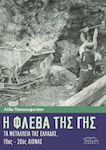
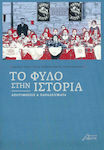


History Books
Δημόσια υγεία και κοινωνική πολιτική: Ο Ελευθέριος Βενιζέλος και η εποχή του
from 23,63 €Added
Similar products
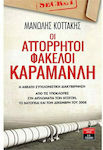

 Top rated
Top rated
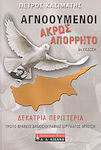
Political Books
Αγνοούμενοι: Άκρως απόρρητο, Δεκατρία περιστέρια: Οι τελευταίοι επιζώντες αγνοούμενοι της Κύπρου: Οι μυστικές αποστολές σωτηρίας τους
Ad from Xryso FteroAdded
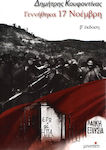

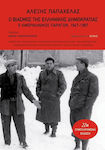
Political Books
Ο βιασμός της ελληνικής δημοκρατίας, Ο αμερικανικός παράγων, 1947-1967
Ad from Buy the bookAdded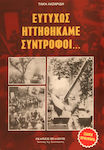

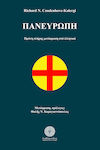
All shops
Prices are calculated for:Luxembourg, Other Payment Options
- 22,40 €
- 22,08 €
- 21,76 €
- 28,80 €
- 28,48 €
Description
In the book, the processes through which the labor market was shaped and the industry of Piraeus developed are examined, while the workers who worked in the textile factories, from the late 19th century to the Interwar period, come to the forefront.
In the textile factories, the numerical fluctuation of a large part of the workforce, which was constantly hired and fired, occasionally and irregularly, depending on the orders, was a fundamental element of flexibility for the businesses, but it required specific technology and a high degree of mechanization. Piecework wages, subcontracting systems, fines, and the extension of the duration of the working day constitute the various methods by which productivity was increased and work discipline was maintained.
Wage labor constituted a decisive experience for the men and women of the city in the new social relations of industrial capitalism. The labor experience was also defined by gender, which played an important role in the division of labor, the formation of skills, the structure of daily wages, and the expression of collective action. The focus on the gender dimension of wage labor allows for the emergence of power relations between social classes and within classes.
The study challenges established historiographical views, proposes a different way of reading social and economic history, and utilizes archives of industrial enterprises in order to focus on the labor process itself in the production spaces.
Specifications
- Subtitle
- The textile industry of Piraeus, 1870-1940
- Format
- Soft Cover
- Number of Pages
- 500
- Publication Date
- 2009
- Dimensions
- 29x21 cm
Important information
Specifications are collected from official manufacturer websites. Please verify the specifications before proceeding with your final purchase. If you notice any problem you can report it here.












































